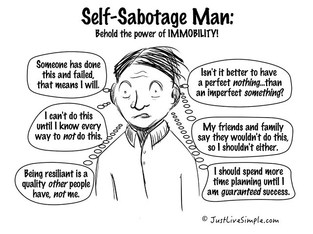 Ever noticed that everyone acts as if there is a league game going on as far as dating and relationships go? It is quite a complex league structure as well, with the leagues being decided on so many factors including looks, age, fashion sense, economic class, education, job prospects and so many other things – half of which we may not even be able to crystallize. Still, every now and then, a friend might pull you back from approaching someone you feel attracted to with the comment, “Chill! Way out of your league! Don’t go hurting yourself!” Are there really such clear-cut leagues in society? Are we destined to be a layered, beleaguered society? Are we constantly looking to trade up in this league game? In matters of love stories, often times the celebrated legends are the ones that break through the barriers, where the leagues don’t matter. There are gods who fall in love with humans, royalty that falls in love with a theatre person (Hey – that story is repeating just now as well!), the rich person and the poor artisan, and hundreds of such stories of people breaking barriers in the name of love. Those are the stories we celebrate and tell generation after generation – not the story of how one industrialist married another, or other general relationships though sometimes they are fun as well. So, when every other story is about breaking barriers and love succeeding in uniting people across levels, why is it that people stay within their leagues? Why do we get warned about what is within our league and what is not? The real story could possibly be about the degree of risk involved, and whether one has the appetite for the risk. Each of us gets quite accustomed to our own ways of life, and while there is always room to adapt and change, drastic changes are a lot to handle especially if there are expectations of permanently adjusting to a new lifestyle right away. It is not easy to adjust to a lot more than what is one used to, or a lot less either. The notion that the lovers find it within themselves to make do and be happy is often belied in reality by bitter struggles for resources and support. Sometimes, the romanticisation such as in the musical Sound of Music, glosses over the difficulties the family goes through with their relationship that breaks through barriers of age, class, parenthood. The book is a lot more honest on that account, but in both, they do survive and manage to thrive all the same. Professing love and courting love is anyway fraught with risk. There are no guarantees that your love will be reciprocated in whatsoever manner. You might get rejected for any number of reasons, and yet one seeks it all the same. So, why let questions of who is in or out of whose league matter, if you are up for the risk? If you don’t mind dusting yourself off and moving on with whatever else life brings up, then go on – break a league. As written for published in The New Indian Express Sabotaging is to deliberately destroy, damage, or obstruct something. Now, imagine doing this yourself that to your self, diligently, day in and day out year after year. That's some serious self-sabotaging. It is not that we are consciously choosing to sabotage ourselves. It happens as if it is an automatic program, a program that got embedded in childhood, a non-stop tape inside our heads that constantly speaks to us in a voice that tells us what's 'wrong' with us, why we cannot succeed despite working hard and how things will never be any different. It is a program that tells us we are not OK, and it keeps getting reinforced till it becomes so scary for us to come close to actually tasting real success, or find our true potential, that we scuttle our chances, we sabotage ourselves so that the 'I knew I couldn't get it' program can win, yet again  What constitutes self-sabotaging behaviour ? The self-sabotaging stems from a firm belief that we are undeserving of love, unworthy of victory, incapable of achieving goals and with every successive 'I told you so' the belief hardens and this in turn reduces our ability to achieve what we want. With every failed attempt, we are proving ourselves that we are incapable of being good at anything. Seeking success of any kind makes our this program kick in, and we start anticipating failure, pain and emotional hurt. To try and protect ourselves from this anticipated pain, we do something or get into behaviours that make it impossible to even attempt and certainly difficult to succeed. That's self-sabotaging behaviour. Self-sabotaging in that sense comes from a need of self-preservation. We create something that can take the blame for the failure. We now have a reason for why something didn’t work out. Our failures therefore are not a result of incompetence but an outcome of choosing some other thing, or an act of nature or just plain bad luck. Sometimes, self-sabotaging behaviour comes across as simple forgetfulness ('Oh, dang! I forgot my cell phone. Now, I just cannot call her to ask for a date.') or procrastination. At other times, it can even seem altruistic and magnanimous - like giving to a competitor your key insights and work products. It can get really dangerous as well - like the dancer who literally breaks a leg for fear of getting on that stage, or the lover who deliberately cheats because this relationship is getting serious. Over the long term, such instances of self-sabotage can become patterns of really harmful behaviour: self-medicating, substance abuse and other ways of self-harm, and that can really be a challenge |
InnerSight BloggersAjanta, Mahesh and other InnerSight counsellors and guest contributors are happy to share their thoughts here. Categories
All
Archives
September 2020
|

 RSS Feed
RSS Feed